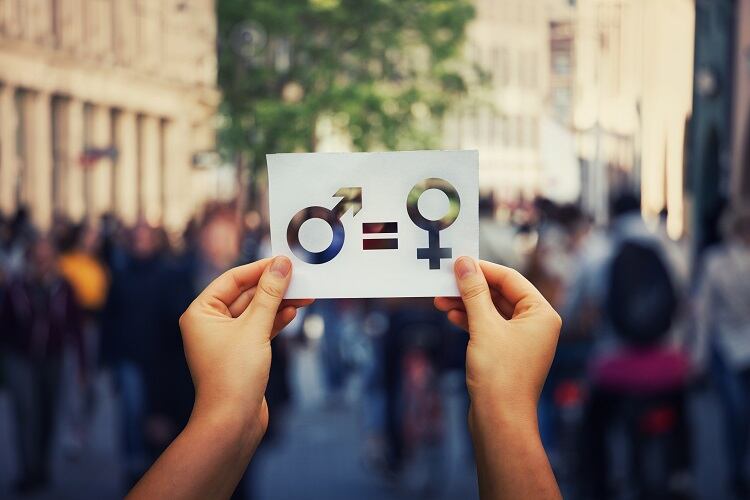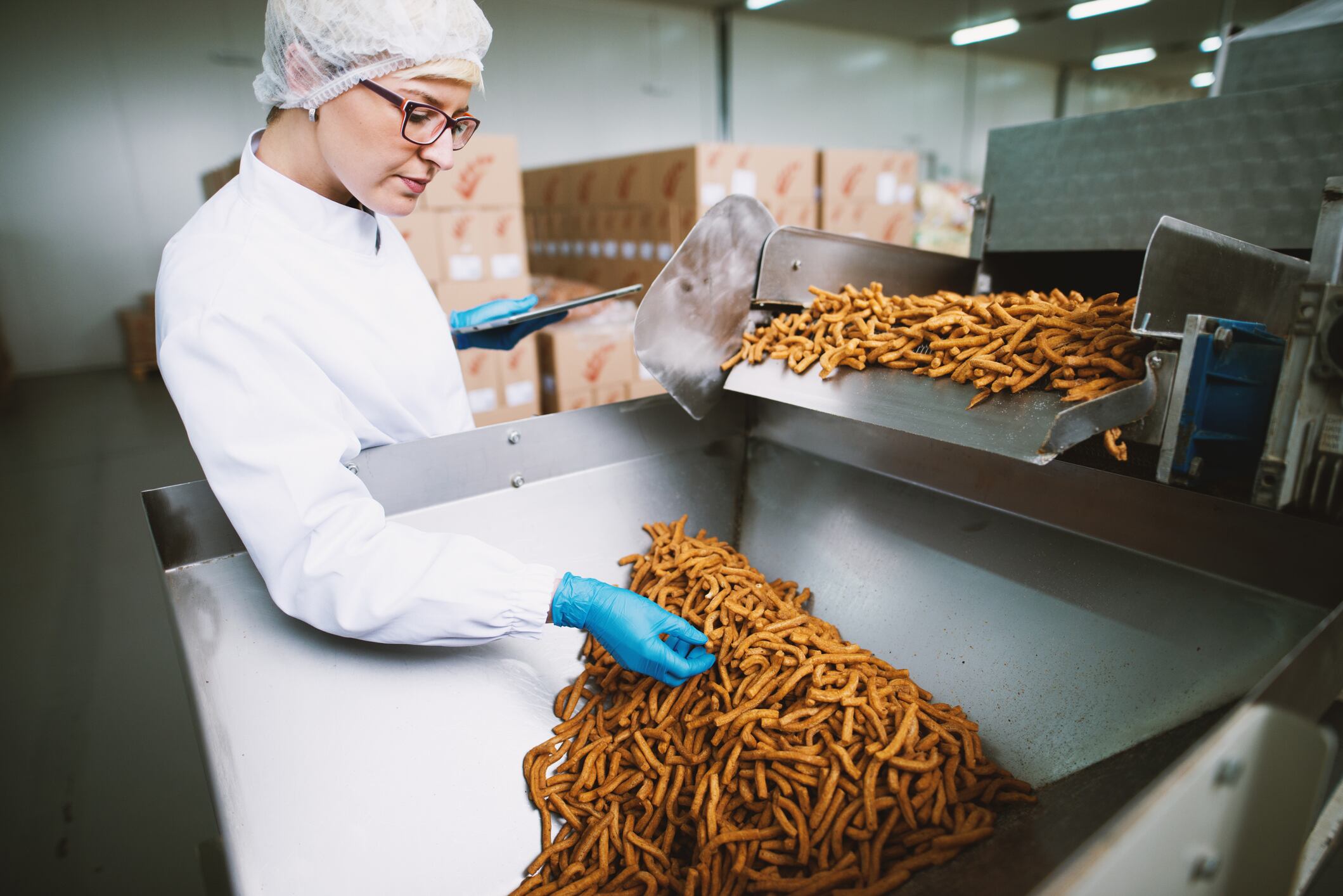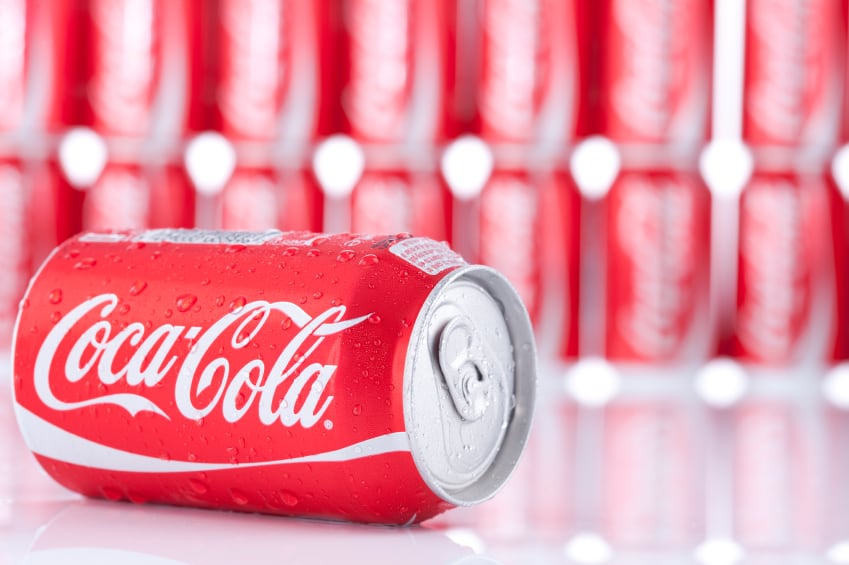International Women’s Day falls on Sunday 8 March this year. Two days out from the global celebration, FoodNavigator addresses arguably the biggest challenge facing women in business: gender equality.
The UN addresses this issue in its fifth Sustainable Development Goal (SDG). By 2030, the intergovernmental organisation wants to “ensure women’s full and effective participation and equal opportunities for leadership at all levels of decision making in political, economic and public life”.
A number of food and beverage companies are making progress in this area. To find out exactly how much, we selected some of the biggest food companies and asked how their proportion of women in managerial positions had changed in recent years.
Danone
Danone has already achieved gender parity in management roles. In 2017, the dairy giant employed 49% female managers directors and executives, and in 2018, this increased to 50%.
In 2019, the company boasted 51% female managers directors and executives.
Unsurprisingly, Danone’s ‘women in leadership’ target therefore addresses the C-Suite. “Our ‘women in leadership’ targets include 30% female leadership at executive level by 2020 and 42% at director level by 2020,” a spokesperson told FoodNavigator.
The company’s 2019 figures will be published at the end of this month.
Unilever
This year, Unilever achieved gender balance across management globally – one year ahead of the target it set itself.
The company slowly increased its percentages over the past few years, from 46% in 2017, to 48% in 2018, 49% in 2019 and now 50% in 2020.
The multinational also boasts a non-executive Board of 45% women, and noted it has made progress in departments where women have ‘historically been underrepresented’: “Finance has reached 50% women at management level globally, and UniOps, Unilever’s operations and technology engine, is now at 47%.
“Supply chain has delivered the biggest step change, having achieved a 40% female representation in management.”
“Women’s equality is the single greatest unlock for social and economic development globally, and having a gender-balanced workforce should be a given, not something that we aspire to. We’re very proud to have reached our goal of equal representation of women and men among our 14,000 managers, but our work doesn’t stop here. We will continue to work towards equal opportunities for women and other under-represented groups both within our business, and beyond.” - Alan Jope, Unilever’s Chief Executive Officer
Nestlé
Swiss food giant Nestlé is making progress towards gender parity at the managerial level. However, its most recently published figures suggest the company is lagging behind Danone and Unilever.
In 2017, Nestlé employed 37.5% women in management roles, in 2018 this increased to 43.2%. The company's 2019 figures regarding gender parity will be published in its CSV Progress Report on 31 March, however a spokesperson told us those figures will be available a week earlier (24 March) in its Annual Review.
Concerning Nestlé’s goals, a spokesperson told the company is “now putting an emphases on increasing the proportion of women in the group’s top 200 senior executive positions from around 20% currently to 30% by 2022”.
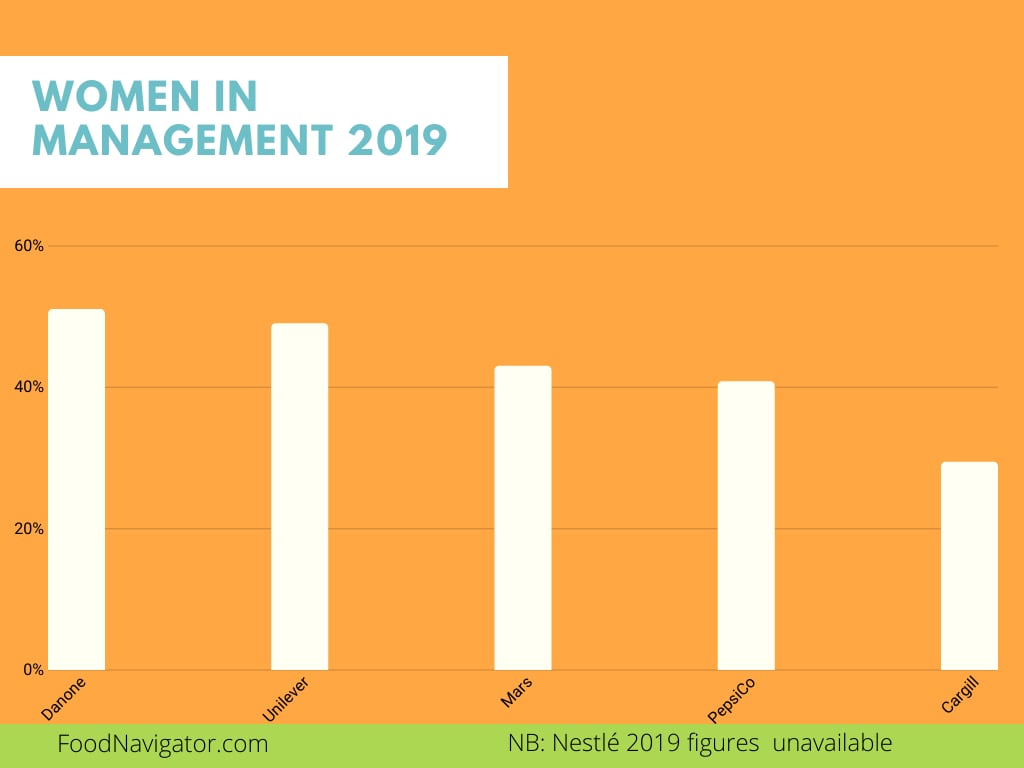
Mars
Mars has seen a steady increase in global management roles filled by women, with 41% in 2017, 42% in 2018 and 43% in 2019.
“Recently, we’ve set ourselves a target to increase the representation of women in the pipeline by at least two percentage points a year, as we examine how we can further accelerate our progress,” a spokesperson told FoodNavigator.
PepsiCo
Drinks and snacks manufacturer PepsiCo aims to achieve gender parity by 2025. In 2017, the company had 39% females in managerial
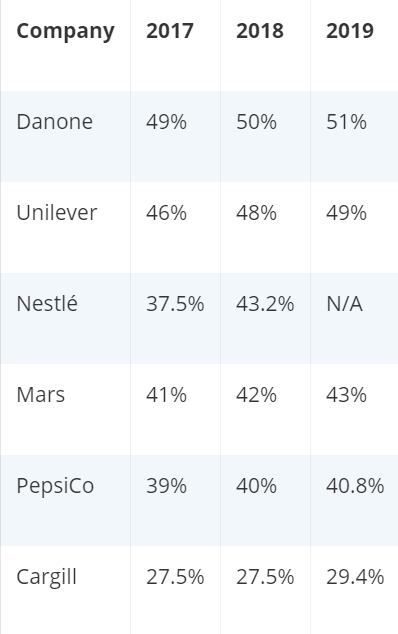
positions, which increased to 40% in 2018.
PepsiCo’s 2019 report will be published in June this year, yet a spokesperson revealed the company’s percentage of women managers has increased to 40.8%
Elsewhere, PepsiCo has 23% women on its Board of Directors, 20% women named executive officers, and 35.2% women on its leadership team.
Cargill
US-headquartered Cargill said it is ‘leveling the playing field’ and ‘removing barriers’ to ensure everyone has an equal opportunity to succeed.
Its ultimate goal is to achieve full gender parity, as well as 50% women in leadership roles globally by 2030.
At the end of Cargill’s FY19 (31 May 2019), the company had 29.4% women in leadership positions globally, which is up from 27.5% in 2017 and 2018.
'Top food and drink jobs mainly filled by men'
With Danone and Unilever having already achieved gender parity, they are ‘ahead of the game’, according to Oliver Nieburg, sustainability analyst for Lumina Intelligence (the insight platform owned by FoodNavigator’s publisher, William Reed Business Media).
Yet Nieburg stressed greater focus is needed on executive management targets across the sector.
“Most companies have targets to increase woman’s representation in managerial positions, but the interpretation differs. Deadline vary, some percentage targets are more ambitious than others, while a few go further to commit to stronger representation in executive positions,” he told FoodNavigator.
“All companies can say they are doing ‘something’ to address the gender imbalance in management, and that they are coming closer to gender parity. Unilever and Danone are already well ahead of the game, achieving gender parity 10 years ahead of the 2030 agenda.
“Yet across companies, targets on executive management are absent or fairly unambitious.”
While progress is being make to increase female representation in management, as demonstrated by this group of selected companies, ultimately, ‘the top jobs in food and drink are still mainly filled by men’.
Nieburg continued: “Decisions made 80% by men at executive level is at odds with the SDG aim for gender equality. An organisation should strive to reflect its workforce and the society it represents. Employees need to know that they can advance to the very top jobs regardless of their sex.”


